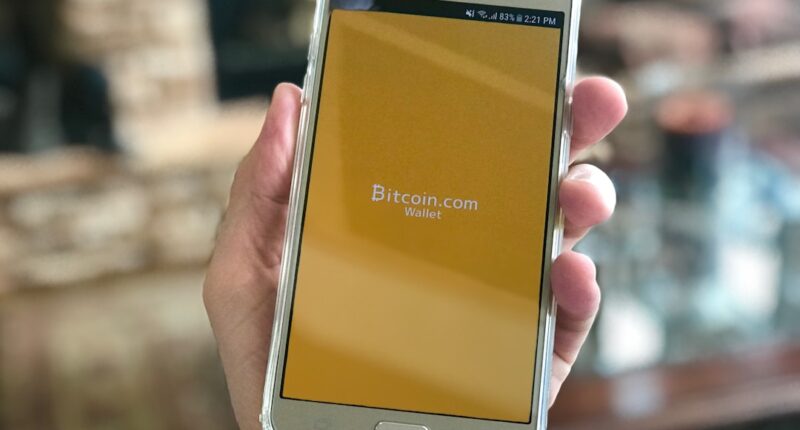NFTs, or non-fungible tokens, are unique digital assets that represent ownership or authenticity of specific items or content using blockchain technology. Unlike fungible cryptocurrencies such as Bitcoin or Ethereum, NFTs are non-interchangeable and indivisible, possessing distinct values that cannot be replicated or substituted. NFTs can represent various digital or physical assets, including artwork, music, videos, virtual real estate, and collectibles.
When purchasing an NFT, buyers acquire a digital certificate of ownership stored on a blockchain. This certificate contains information about the item, its creator, current owner, and transaction history, facilitating easy verification of authenticity and ownership, as well as transfer to new owners. Transactions involving NFTs typically use cryptocurrency, with Ethereum (ETH) being the most common blockchain for creating and trading NFTs.
Other blockchains, such as Binance Smart Chain and Flow, are also gaining traction in NFT transactions. The process of creating, buying, and selling NFTs requires the use of digital wallets and interaction with NFT marketplaces, where users can browse, bid on, and purchase these digital assets. As the NFT market expands, it is crucial for investors to understand the mechanics of NFTs and navigate the various platforms and technologies involved in trading these digital assets.
Key Takeaways
- NFT tokens are unique digital assets that represent ownership of a specific item or piece of content and are stored on a blockchain.
- When choosing a digital wallet for NFT investments, consider factors such as security, user interface, and compatibility with the NFT marketplaces you plan to use.
- Look for reputable NFT marketplaces with a track record of successful transactions, transparent fees, and a wide variety of available tokens.
- Research and evaluate NFT projects and artists by examining their track record, reputation, and the uniqueness and quality of their digital assets.
- When making purchases with cryptocurrency, consider using ETH, BTC, or other options based on factors such as transaction fees and processing times.
- Store and manage NFT tokens in a secure manner by using hardware wallets, encrypted storage, and following best practices for cybersecurity.
- Keep up with the latest news and trends in the NFT market, including updates on ETH and BTC, to make informed investment decisions and stay ahead of the curve.
Choosing the Right Digital Wallet for NFT Investments
Types of Digital Wallets
Hot wallets are connected to the internet and are convenient for frequent trading and transactions, while cold wallets are offline devices that provide an extra layer of security for long-term storage of assets. For NFT investments, it is recommended to use a digital wallet that is compatible with the Ethereum blockchain, as most NFTs are created and traded on the Ethereum network.
Popular Ethereum-Compatible Wallets
Popular Ethereum-compatible wallets include MetaMask, MyEtherWallet, Trust Wallet, and Coinbase Wallet. These wallets allow users to connect to NFT marketplaces and interact with smart contracts to buy, sell, and transfer NFTs.
Key Features to Consider
It is important to choose a wallet that prioritizes security features such as two-factor authentication, encryption, and backup options to protect your NFT investments from unauthorized access or theft. In addition to security features, usability and compatibility with NFT marketplaces are also important factors to consider when choosing a digital wallet for NFT investments. Some wallets offer built-in support for browsing and trading NFTs directly within the app, while others require users to connect their wallet to external marketplaces using wallet extensions or browser plugins. By carefully evaluating the features and capabilities of different digital wallets, investors can find the right solution that meets their needs for securely managing their NFT tokens.
Finding Reputable NFT Marketplaces for Buying and Selling Tokens

As the demand for NFTs continues to rise, there is an increasing number of NFT marketplaces where users can buy and sell digital assets. These marketplaces serve as platforms for artists, creators, and collectors to showcase and trade their NFTs, offering a wide variety of digital content ranging from art and music to virtual real estate and gaming items. When looking for reputable NFT marketplaces, it is important to consider factors such as user interface, fees, security measures, and the quality of the content available for purchase.
Some of the most popular NFT marketplaces include OpenSea, Rarible, Foundation, SuperRare, and NBA Top Shot. These platforms provide a user-friendly interface for browsing and discovering NFTs, as well as tools for creators to mint and list their own digital assets for sale. Each marketplace has its own fee structure for buying, selling, and transferring NFTs, so it is important to compare the fees and payment options offered by different platforms to find the most cost-effective solution for trading NFTs.
In addition to fees and usability, security is a critical consideration when choosing an NFT marketplace. Look for marketplaces that prioritize the security of user accounts and transactions by implementing measures such as two-factor authentication, secure payment gateways, and smart contract audits. It is also important to research the reputation of the marketplace and read reviews from other users to ensure that it is a trustworthy platform for buying and selling NFT tokens.
By carefully evaluating these factors, investors can find reputable NFT marketplaces that offer a safe and seamless experience for trading digital assets.
Researching and Evaluating NFT Projects and Artists
Before making any investment in NFTs, it is essential to conduct thorough research and evaluation of the projects and artists behind the digital assets. With the growing popularity of NFTs, there is an abundance of new projects and creators entering the market, each offering unique content and investment opportunities. By researching the background, reputation, and previous work of artists and projects, investors can make informed decisions about which NFTs to purchase and support.
When evaluating NFT projects, consider factors such as the concept and originality of the content, the track record of the creators, the rarity and scarcity of the assets being offered, and the potential for future value appreciation. Look for projects that have a strong community following, transparent communication from the creators, and a clear roadmap for the development and growth of their NFT ecosystem. By understanding the vision and goals of the project, investors can assess whether it aligns with their own investment objectives and risk tolerance.
Similarly, when researching artists in the NFT space, consider their portfolio of work, their reputation in the art world, their social media presence and engagement with their audience, as well as any previous sales or collaborations within the NFT community. Look for artists who have a unique artistic style or perspective that sets them apart from others in the market, as well as those who have a proven track record of creating valuable and sought-after digital assets. By evaluating these factors, investors can make informed decisions about which artists and projects to support through their NFT purchases.
Making Purchases with Cryptocurrency: Using ETH, BTC, and Other Options
When buying NFTs, investors have the option to make purchases using various cryptocurrencies such as Ethereum (ETH), Bitcoin (BTC), or other altcoins supported by the chosen marketplace or platform. Ethereum is the most commonly used cryptocurrency for buying and selling NFTs due to its native support for smart contracts and its widespread adoption within the NFT ecosystem. Many NFT marketplaces exclusively accept payments in ETH for purchasing digital assets, while others may also support alternative cryptocurrencies or stablecoins.
Bitcoin is another popular cryptocurrency that is increasingly being accepted for purchasing NFTs on certain platforms. While Bitcoin does not natively support smart contracts like Ethereum does, some marketplaces have implemented solutions such as wrapped Bitcoin (WBTC) or layer 2 protocols to enable Bitcoin payments for NFT transactions. Additionally, some marketplaces may accept other cryptocurrencies such as Litecoin (LTC), Ripple (XRP), or stablecoins like USD Coin (USDC) or Tether (USDT) as alternative payment options for buying NFTs.
Before making a purchase with cryptocurrency, it is important to consider factors such as transaction fees, network congestion, and price volatility associated with different cryptocurrencies. Ethereum transactions may incur gas fees that fluctuate based on network demand, while Bitcoin transactions may also have varying fees depending on network conditions. Additionally, price volatility in cryptocurrency markets can impact the cost of purchasing NFTs when converting between different cryptocurrencies or fiat currencies.
By understanding these factors and choosing the right cryptocurrency for making purchases, investors can optimize their buying power and minimize transaction costs when acquiring NFT tokens.
Storing and Managing NFT Tokens in a Secure Manner

Understanding the Risks of Digital Ownership
After purchasing NFT tokens, it is crucial to store and manage them in a secure manner to protect against theft or unauthorized access. Unlike physical assets or traditional investments, NFTs exist in a digital form on a blockchain and are associated with specific wallet addresses controlled by private keys. This means that securing access to your digital wallet is essential for safeguarding your NFT investments from potential security risks.
Secure Storage Options for NFT Tokens
To store NFT tokens securely, consider using a hardware wallet or cold storage solution that provides offline storage for private keys and offers protection against hacking or malware attacks. Hardware wallets such as Ledger or Trezor are popular choices for securely storing cryptocurrencies and managing access to NFT tokens through compatible wallet applications. By keeping private keys offline in a hardware wallet, investors can mitigate the risk of unauthorized access to their digital assets while still being able to conveniently access them when needed.
Advanced Security Features for Enhanced Protection
In addition to hardware wallets, some digital wallet applications offer advanced security features such as multi-signature authentication or biometric verification to add an extra layer of protection for managing NFT tokens. It is important to regularly back up your wallet seed phrase or private keys in a secure location to prevent loss of access in case of device failure or loss.
Best Practices for NFT Token Management
By implementing strong security practices and using reputable wallet solutions, investors can ensure that their NFT tokens are stored and managed in a secure manner that minimizes the risk of theft or loss.
Keeping Up with the Latest News and Trends in the NFT Market, Including ETH and BTC Updates
As the NFT market continues to evolve rapidly with new developments and trends emerging regularly, it is important for investors to stay informed about the latest news and updates in the industry. This includes staying up-to-date with trends in the art world, technology advancements in blockchain platforms like Ethereum (ETH) and Bitcoin (BTC), regulatory changes impacting the use of cryptocurrencies for purchasing NFTs, as well as shifts in consumer demand for different types of digital content. By following reputable news sources focused on blockchain technology, cryptocurrency markets, art industry publications, and social media channels dedicated to NFT communities, investors can gain valuable insights into market trends and opportunities for investment.
Pay attention to announcements from major NFT marketplaces about new features or partnerships that may impact trading dynamics or user experience. Stay informed about changes in gas fees on Ethereum or network upgrades that could affect transaction costs or processing times for buying and selling NFTs. In addition to staying informed about industry news and trends, it is also important to keep an eye on updates related to Ethereum (ETH) and Bitcoin (BTC) networks that may impact their use for purchasing or storing NFT tokens.
This includes monitoring network upgrades such as Ethereum’s transition to Ethereum 2.0 or Bitcoin’s adoption of new scaling solutions like the Lightning Network. By staying informed about these updates and understanding their potential impact on the NFT market, investors can make informed decisions about their investment strategies and adapt to changes in the evolving landscape of digital assets. In conclusion, understanding how NFT tokens work involves grasping their unique characteristics as non-fungible digital assets that represent ownership or proof of authenticity using blockchain technology.
Choosing the right digital wallet is crucial for securely storing and managing NFT tokens while finding reputable marketplaces ensures safe transactions when buying or selling tokens. Researching projects and artists helps make informed investment decisions while making purchases with cryptocurrency requires careful consideration of transaction fees and price volatility associated with different cryptocurrencies. Storing and managing NFT tokens securely involves using hardware wallets or advanced security features in digital wallet applications while keeping up with industry news ensures staying informed about trends in the ever-evolving world of NFTs including updates related to Ethereum (ETH) and Bitcoin (BTC) networks.
FAQs
What are NFT tokens?
NFT stands for non-fungible token, which is a digital asset that represents ownership or proof of authenticity of a unique item or piece of content, such as artwork, music, videos, or collectibles.
How do NFT tokens work?
NFT tokens are built on blockchain technology, which ensures their scarcity, ownership, and provenance. Each NFT is unique and cannot be replicated, making it a valuable digital asset.
Where can I buy NFT tokens?
NFT tokens can be bought and sold on various online platforms called NFT marketplaces, such as OpenSea, Rarible, and Foundation. These platforms allow users to browse, buy, and sell NFT tokens.
What do I need to buy NFT tokens?
To buy NFT tokens, you will need a digital wallet that supports the Ethereum cryptocurrency, as most NFT tokens are based on the Ethereum blockchain. You will also need to have some Ethereum (ETH) in your wallet to make purchases.
Are NFT tokens a good investment?
The value of NFT tokens can be highly speculative and volatile. While some NFTs have sold for millions of dollars, others may not retain their value over time. It’s important to do thorough research and consider the risks before investing in NFT tokens.





